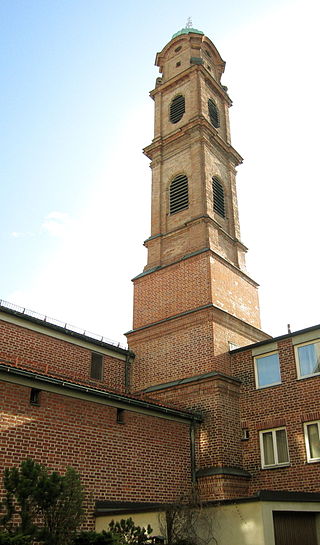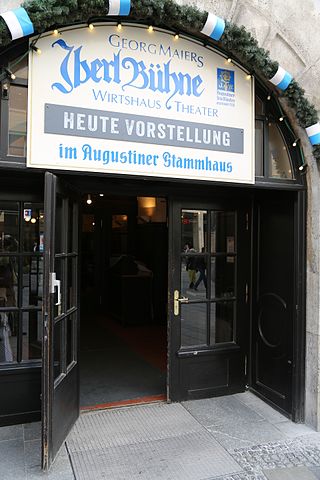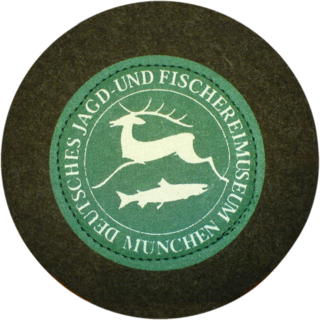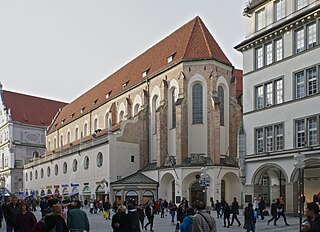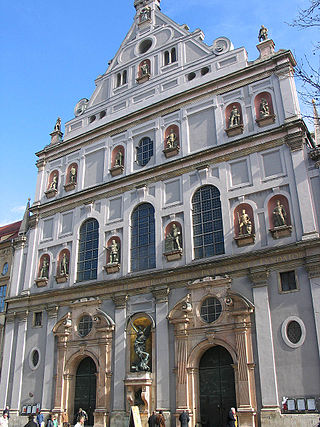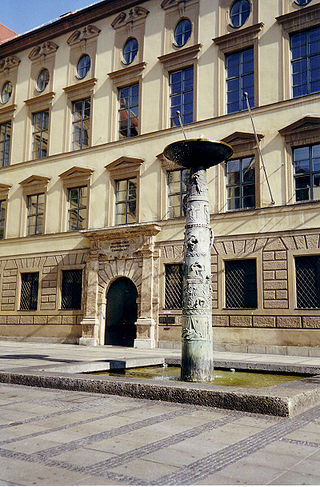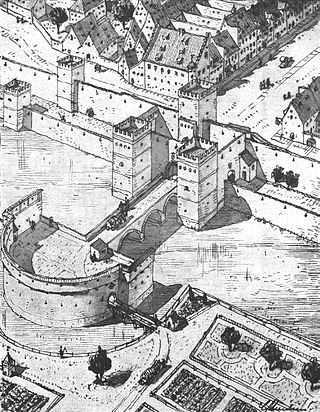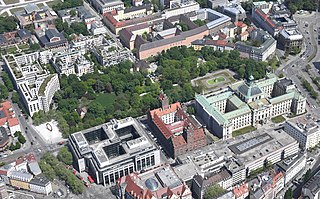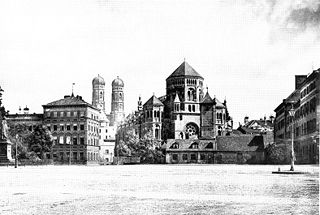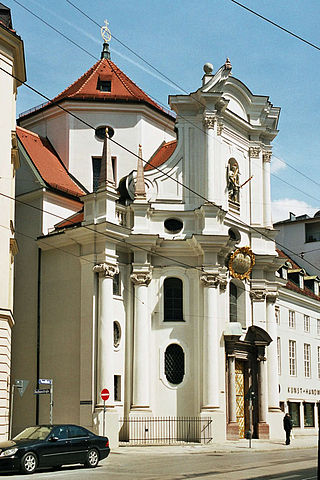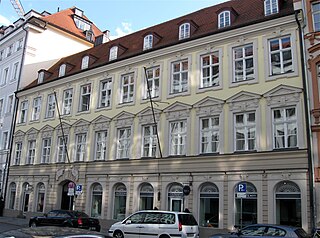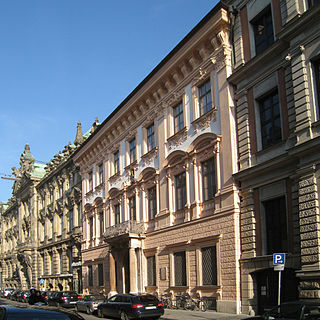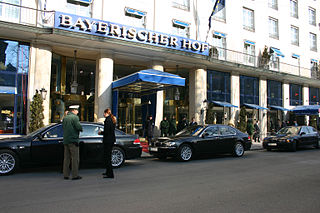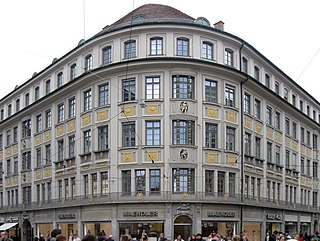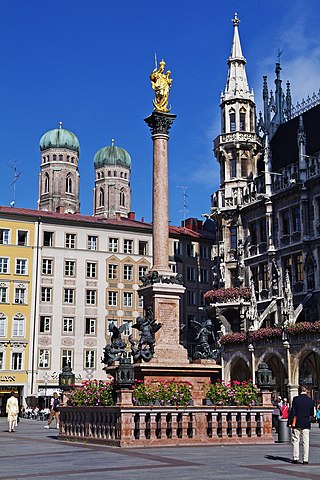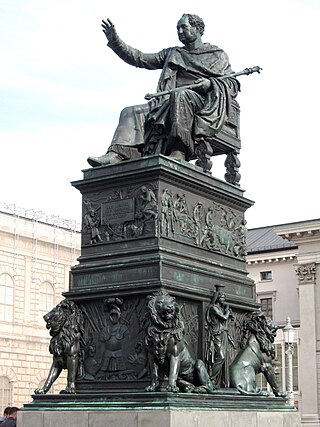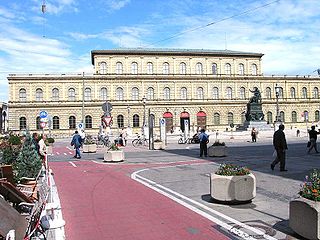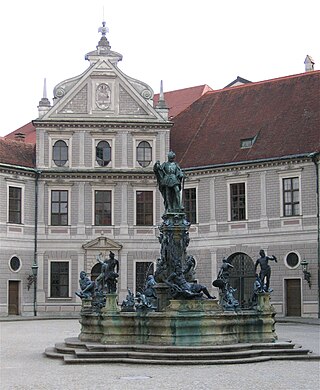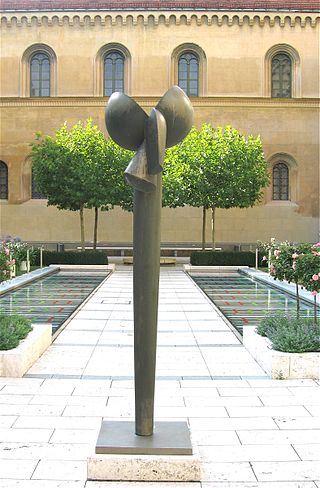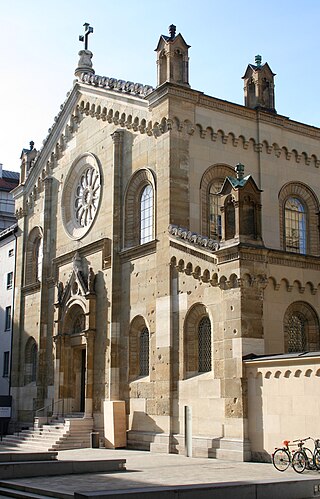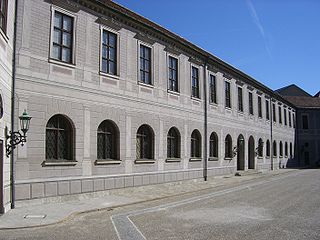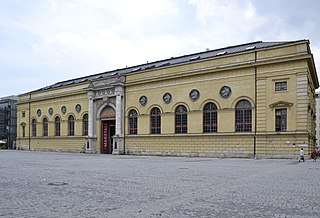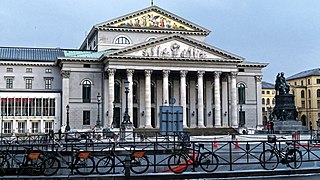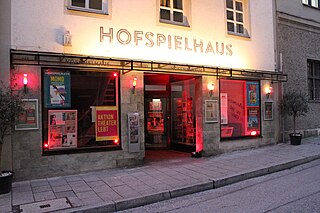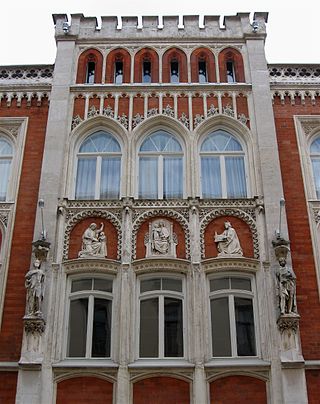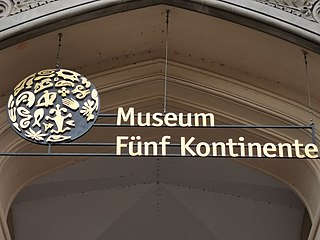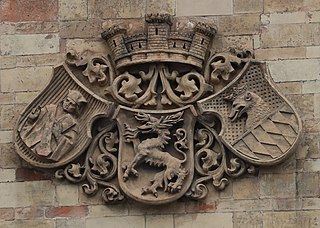Self-guided Sightseeing Tour #2 in Munich, Germany
Legend
Guided Free Walking Tours
Book free guided walking tours in Munich.
Guided Sightseeing Tours
Book guided sightseeing tours and activities in Munich.
Tour Facts
8.3 km
147 m
Experience Munich in Germany in a whole new way with our free self-guided sightseeing tour. This site not only offers you practical information and insider tips, but also a rich variety of activities and sights you shouldn't miss. Whether you love art and culture, want to explore historical sites or simply want to experience the vibrant atmosphere of a lively city - you'll find everything you need for your personal adventure here.
Activities in MunichIndividual Sights in MunichSight 1: St. Elisabeth
The Catholic Church of St. Elisabeth in Munich served as the hospital church of the Elisabethinen and was built in the late Rococo period. It belongs to the parish of St. Peter.
Sight 2: Pfarrkirche St. Matthäus
The Evangelical Lutheran parish church of St. Matthew, also known as St. Matthew's Church, is the most important Protestant church in Munich. The current building, which was built according to plans by Gustav Gsaenger between 1953 and 1957, is the successor to the old St. Matthew's Church, which was built in 1833 in the post-classical style as the first Protestant church in Munich and demolished in 1938. St. Matthäus is a bishop's church of the Evangelical Lutheran Church in Bavaria.
Sight 3: Sendlinger Tor
The Sendlinger Tor is a city gate at the southern extremity of the historic old town area of Munich. It served as a fortification for defence and is one of Munich's three remaining gothic town gates.
Sight 4: Sankt Johann Nepomuk / Asam Church
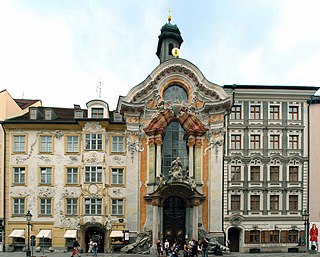
St. Johann Nepomuk, better known as the Asam Church, is a Baroque church in Munich, southern Germany. It was built from 1733 to 1746 by a pair of brothers, sculptor Egid Quirin Asam and painter Cosmas Damian Asam, as their private church. It is considered to be one of the most important buildings of the southern German Late Baroque.
Sight 5: Allerheiligenkirche am Kreuz
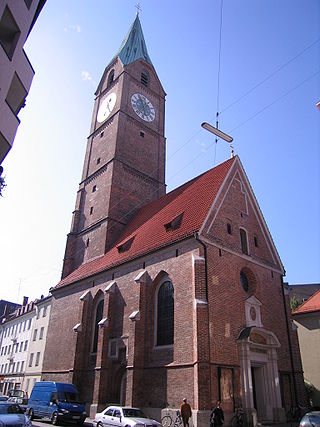
The Church of All Saints also known as Holy Cross Church, is a cemetery church in Munich, southern Germany.
Sight 6: Radspielerhaus
The listed Palais Rechberg or Radspielerhaus is a city palace in Munich, Germany. It is located at Hackenstraße 7 in the Hackenviertel. The palace was built in 1678 and modified after 1817 by the architect Jean Baptiste Métivier.
Sight 7: Gasthaus zur Hundskugel
The Hundskugel was a traditional restaurant in Munich. It was located in one of the oldest surviving town houses in the city. It is located in Munich's old town in the Hackenviertel at Hotterstraße 18. The building was first documented in 1484/1485. It is a listed building. From 1983 until his murder in 2005, Rudolph Moshammer was the owner of the building and a regular guest at the inn. Moshammer bequeathed it to the city of Munich, with the condition that it be used for a social purpose. Other famous guests were Heinrich Heine, who lived for a time in the nearby Radspielerhaus, Ignaz Günther, Roman Anton Boos and Franz Anton Bustelli. On May 31, 2011, the restaurant ceased operations for economic reasons. The house was converted and operated by the Todenhöfer family's "Sternenstaub Foundation" as a social meeting place.
Sight 8: Museum of Urban and Contemporary Art (MUCA)
The Museum of Urban and Contemporary Art (MUCA) is an art museum in Munich's old town, Germany.
Wikipedia: Museum of Urban and Contemporary Art (EN), Website
Sight 9: Damenstiftskirche St. Anna
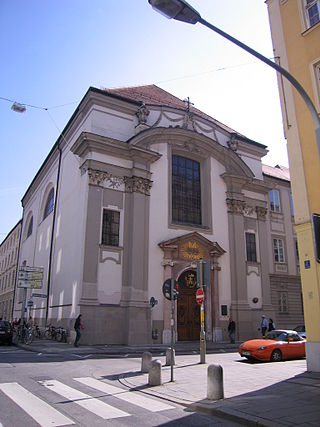
Damenstiftskirche St. Anna is a chapel in Munich, southern Germany.
Sight 10: Herzogspitalkirche
Herzogspitalkirche is a Catholic church in Munich, southern Germany.
Sight 11: Iberl Bühne
The Iberl Bühne is a Bavarian tavern theatre in Munich, Germany.
Sight 12: Sitting Boar
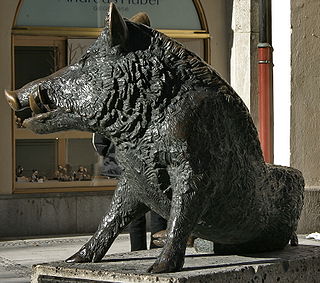
The Seated Boars are two identical bronze sculptures in Munich, each depicting a male wild boar.
Sight 13: Deutsches Jagd- und Fischereimuseum
The German Hunting and Fishing Museum is a museum exhibiting objects connected with the history of hunting and fishing in Germany or other territories which nowadays belong to it.
Sight 14: Teufelstritt
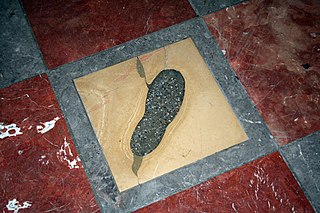
The black step, also known as the devil's step, is an imprint on the floor of the entrance hall of Munich's Frauenkirche.
Sight 15: Augustinerkirche
The Augustinian Church, also called the Augustinian Abbey (Augustinerkloster) or Abbey Church of St John the Baptist and John the Evangelist is a former church in Munich, Germany. Constructed during the 13th century and expanded during the next two centuries, it was the Abbey Church of the Augustinian hermits in the city.
Sight 16: St. Michael's Church
St. Michael's is a Jesuit church in Munich, capital city of the state of Bavaria, Germany. It is the largest Renaissance church north of the Alps. The style of the building had an enormous influence on Southern German early Baroque architecture.
Sight 17: Richard-Strauss-Brunnen
The Richard Strauss Fountain is located in Munich's pedestrian zone in front of the Alte Akademie. It forms a flowing end on the western side of the square-like area between the Old Academy and St. Michael's Church. Opposite on the south side stood the birthplace of Richard Strauss; since autumn 2013, the Josef Pschorr House has been located there.
Sight 18: Bürgersaalkirche
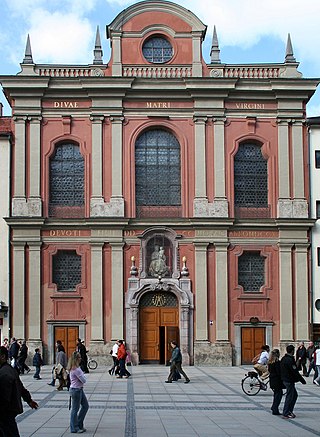
The Bürgersaal is a historical building in Munich, Germany. Also known as Bürgersaalkirche since the consecration of the altar on May 13, 1778, it is the prayer and meeting room of the Marian Men Congregation "Annunciation". It was built in 1709/1710 to a design by Giovanni Antonio Viscardi.
Sight 19: Karlstor
Get Ticket*Karlstor in Munich is a medieval city gate, which served as a defensive fortification and a checkpoint.
Sight 20: Alter Botanischer Garten
The Old Botanical Garden is an urban park and former botanical garden in Maxvorstadt, Munich, Germany.
Sight 21: memorial stone old central synagogue
The Old Main Synagogue in Munich was located on Herzog-Max-Straße in the old town of Munich. It was built from 1883 to 1887 by King Ludwig II by the architect Albert Schmidt in the Neo-Romanesque style. In June 1938, it was one of the first synagogues in Germany to be destroyed by the National Socialists on the personal orders of Adolf Hitler.
Sight 22: Dreifaltigkeitskirche
The Trinity Church is a religious building in Munich, southern Germany. It is a votive church and was designed in Bavarian Baroque style according to plans from Giovanni Antonio Viscardi from 1711 to 1718. It is a monastery church of the Carmelites and a church of the Metropolitan parish of Our Blessed Lady. During the Second World War this was the only church in the center of Munich, which had been spared from destruction by bombs.
Sight 23: Palais Seinsheim
The Palais Seinsheim is a city palace in the late Rococo style at Prannerstraße 7 in Munich.
Sight 24: Palais Holnstein
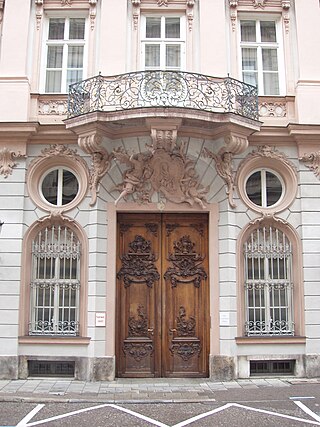
Holnstein Palace is an historic building in Munich, Southern Germany, which has been the residence of the Archbishop of Munich and Freising since 1818.
Sight 25: Palais Porcia
The Palais Porcia is a Baroque mansion in Munich, southern Germany, which served as residence for Count Fugger. It is Munich's oldest still existing Baroque-style palace.
Sight 26: Palais Montgelas
The Bayerischer Hof is a grand hotel in Munich, Germany. It is located on Promenadeplatz in Munich's northwestern Old Town. The Bayerischer Hof is often visited by state guests and other prominent guests.
Sight 27: Komödie im Bayerischen Hof
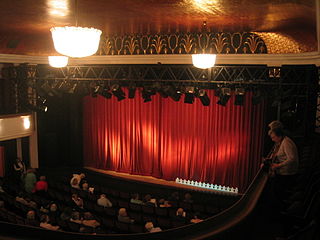
The Komödie im Bayerischen Hof is a large private theater in the Hotel Bayerischer Hof, Munich, Bavaria, Germany. Comedies, musical comedies, musicals and revues are performed in the 570-seat theater.
Sight 28: Arco-Palais
The Arco-Palais is a commercial building in Munich's Old Town, Theatinerstraße 7, at the corner of Theatinerstraße / Maffeistraße. Together with the building at Maffeistraße 4, it forms a building block which is registered as a historical monument in the Bavarian Monument List.
Sight 29: Mary's Column
The Mariensäule is a Marian column located on the Marienplatz in Munich, Germany. Mary is revered here as Patrona Bavariae.
Sight 30: Alter Hof
Get Ticket*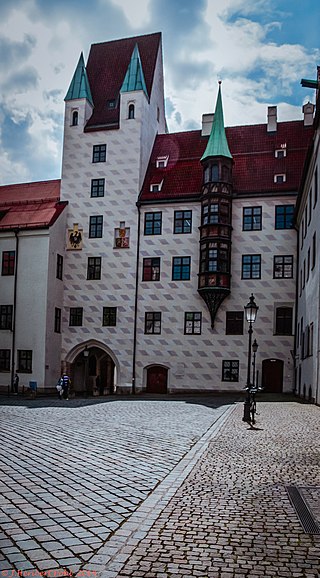
The Alter Hof in the center of Munich is the former imperial residence of Louis IV, Holy Roman Emperor and consists of five wings: Burgstock, Zwingerstock, Lorenzistock, Pfisterstock and Brunnenstock. Like most of the old town, it was rebuilt after being destroyed in World War II.
Sight 31: Maximilian I. Joseph König von Bayern
The Max Joseph Monument is a seat sculpture made of cast iron on Max-Joseph-Platz in Munich. Created between 1826 and 1835 by the sculptor Christian Daniel Rauch, it depicts the Bavarian king on the ornate throne. The monument is one of the most important works of classicist sculpture.
Sight 32: Residence Museum and Treasury
The Residence Museum is the name given to the exhibition rooms of the Munich Residence, which have been open to the public since 1920 under the name of the Residence Museum.
Sight 33: Wittelsbacherbrunnen
The Wittelsbach Fountain is a monumental fountain in the courtyard of the Munich Residence. It was built between 1611 and 1623 by Hans Krumpper and Hubert Gerhard in the Renaissance style and is one of the oldest and largest fountains in Munich.
Sight 34: Bayerische Akademie der Wissenschaften
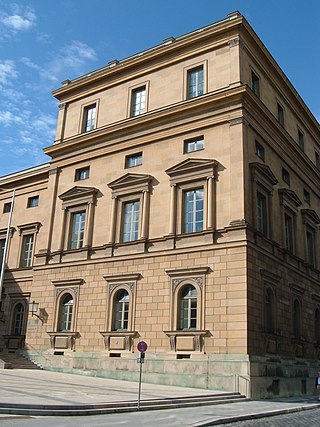
The Bavarian Academy of Sciences and Humanities is an independent public institution, located in Munich. It appoints scholars whose research has contributed considerably to the increase of knowledge within their subject. The general goal of the academy is the promotion of interdisciplinary encounters and contacts and the cooperation of representatives of different subjects.
Sight 35: Flora III
Flora III is a sculpture by Fritz Koenig in Munich. It was unveiled on 4 September 2003 in the cabinet garden of the Munich Residence, which was redesigned by landscape architect Peter Kluska.
Sight 36: Allerheiligen Hofkirche
The Allerheiligen-Hofkirche is a Catholic church in the Munich Residenz designed by Leo von Klenze and built between 1826 and 1837.
Sight 37: Cuvilliés Theatre
The Cuvilliés Theatre or Old Residence Theatre is the former court theatre of the Residenz in Munich, Bavaria, Germany.
Sight 38: Bayerisches Staatsschauspiel - Marstall
The Marstall, also known as the former Riding School and Marstall, is located on Marstallplatz in the Altstadt-Lehel district of the Bavarian capital Munich. The classicist building was built between 1817 and 1822 by Leo von Klenze and is a listed building.
Sight 39: National Theatre Munich
The National Theatre at Max-Joseph-Platz in Munich is the venue of the Bavarian State Opera, the Bavarian State Orchestra and the Bavarian State Ballet. It was built in 1811–1818 by King Max Joseph of Bavaria by the architect Karl von Fischer as the Royal Court and National Theatre. The classicist building has been destroyed and rebuilt twice in the course of history. The National Theatre is not to be confused with the neighbouring Residenztheater.
Sight 40: Hofspielhaus
The Hofspielhaus is a private theatre in Munich, Germany. It was founded in October 2015 by actress and singer Christiane Brammer. Since 2019, it has been a non-profit limited liability company.
Sight 41: Wohnhaus Blum
The Blum residential building at Stollbergstraße 18 is a listed residential building built in 1857 in Munich's Altstadt-Lehel district, which "offers one of the most beautiful residential building facades in the Maximilian style".
Sight 42: Museum Fünf Kontinente
The Museum Five Continents or Five Continents Museum, located in Munich, Germany, is a museum for non-European artworks and objects of cultural value. Its name until 9 September 2014 was Bavarian State Museum of Ethnology.
Sight 43: Regierung von Oberbayern
The building of the Government of Upper Bavaria in Maximilianstraße in Munich houses the Government of Upper Bavaria and the Southern Bavaria Aviation Authority, the aviation authority for the administrative districts of Upper Bavaria, Lower Bavaria and Swabia.
Share
How likely are you to recommend us?
Disclaimer Please be aware of your surroundings and do not enter private property. We are not liable for any damages that occur during the tours.
GPX-Download For navigation apps and GPS devices you can download the tour as a GPX file.
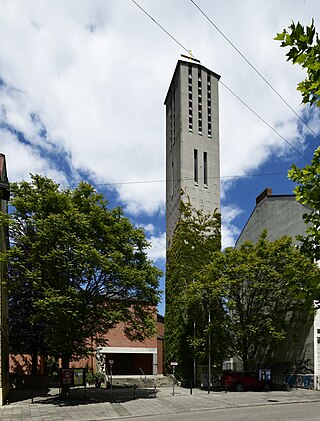
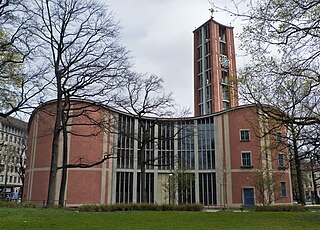
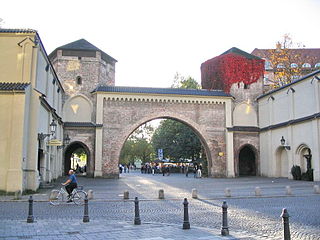
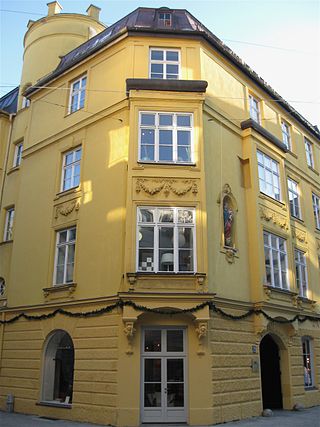
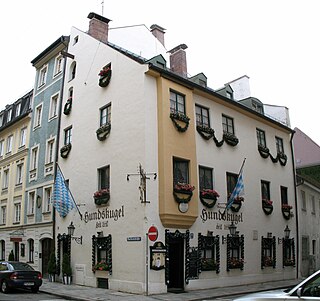
.jpg)
